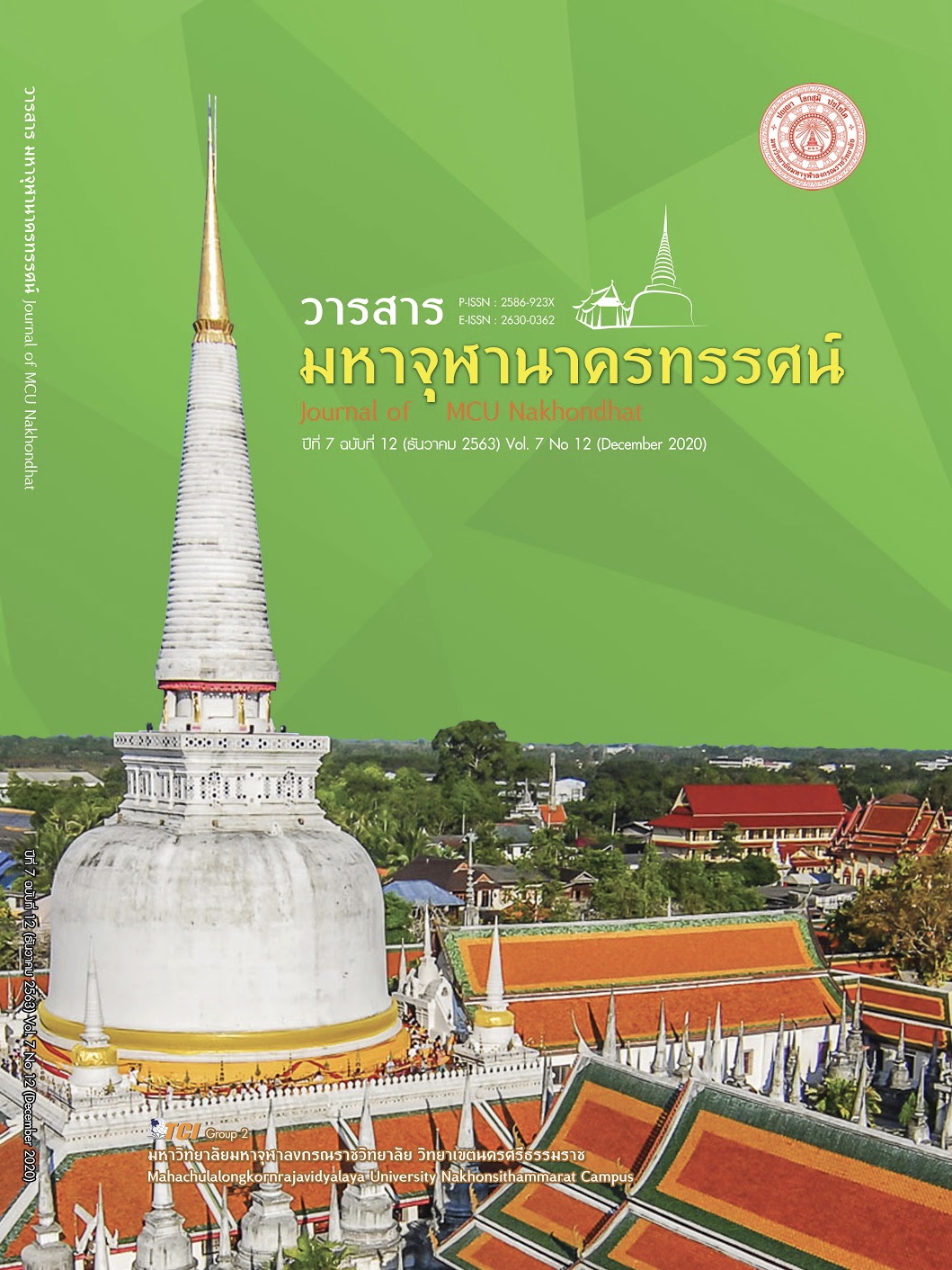THE DEVELOPMENT OF THE INSTRUCTIONAL MODEL TO DEVELOP THE TEACHER STUDENTS CREATIVELY CONTEMPLATIVE PROCESS, THE PHYSICAL EDUCATION PROGRAM OF EDUCATIONAL DEPARTMENT OF NATIONAL SPORTS UNIVERSITY, LAMPANG CAMPUS
Main Article Content
Abstract
The objectives of this research article were to 1) study the problems and the needs of the instructional model development for developing the creatively contemplative process 2) develop the instructional model in developing the teacher students’ creatively contemplative process and 3) study the result of the instructional model in developing the teacher students’ creatively contemplative process. This research is Action Research. The participants were included the 3rd year graduate students of the physical education program of the faculty of education, the national sports university, Lampang campus on the semester 1st in academic year 2020, 57 numbers selected by cluster random sampling. The research tools included 1) the questionnaire related to the problems and the needs of the instructional model development in developing the teacher students’ creatively contemplative process. 2) The instructional model for developing the teacher students’ creatively contemplative process. 3) The test of the creatively contemplative process skill and 4) the questionnaire of students’ satisfaction on the instructional model in developing the teacher students’ creatively contemplative process. The statistics employed in the analysis concluded the basic statistics: and S.D. The result found that 1) The result of the study of the problems and the needs in developing the teacher students’ creatively contemplative process found that the problems were at the middle level, while the needs were at the highest level. 2) The result of the instructional model for the teacher students’ creatively contemplative process consisted of the five stages of the instruction called 3P2E MODEL and being the most appropriate. 3) The result of the use of the instructional model for developing the teacher students’ creatively contemplative process was the highest level. And the teacher students’ satisfaction was totally agreed the most.
Article Details
References
จิติมา วรรณศรี. (2552). คุณภาพการศึกษากับสมรรถนะของครูที่พึงประสงค์. วารสารศึกษาศาสตร์, 32(1), 1-5.
ชาตรี ฝ่ายคำตา. (2554). วิธีสอนวิทยาศาสตร์ระดับประถมศึกษา. กรุงเทพมหานคร: เอพริลเรนพริ้นติ้ง.
ชุลีกร ยิ้มสุด. (2552). การพัฒนาการคิดไตร่ตรองและพฤติกรรมการสอนที่เน้นผู้เรียนเป็นสำคัญของครูประถมศึกษาโดยใช้เทคนิคการวิจัยปฏิบัติการแบบมีส่วนร่วม. ใน ดุษฎีนิพนธ์วิทยาศาสตรดุษฎีบัณฑิต สาขาวิชาการวิจัยพฤติกรรมศาสตร์ประยุกต์. มหาวิทยาลัยศรีนครินทรวิโรฒ.
พรทิพย์ ศิริสมบูรณ์เวช. (2547). การพัฒนารูปแบบการเรียนการสอนวรรณคดีไทยตามทฤษฎีการตอบสนองของผู้อ่านเพื่อเสริมสร้างความสามารถด้านการตอบสนองต่อวรรณคดี การอ่านเพื่อความเข้าใจและการคิดไตร่ตรองของนิสิตระดับปริญญาบัณฑิต. ใน ดุษฎีนิพนธ์ครุศาสตรดุษฎีบัณฑิต สาขาวิชาหลักสูตรและการสอน. จุฬาลงกรณ์มหาวิทยาลัย.
พลรพี ทุมมาพันธ์. (2545). ผลของการทำวิจัยปฏิบัติการที่มีต่อความสามารถด้านการคิดสะท้อนของครูระดับประถมศึกษา. ใน วิทยานิพนธ์ครุศาสตรมหาบัณฑิต สาขาวิชาการวิจัยการศึกษา. จุฬาลงกรณ์มหาวิทยาลัย.
รสริน เจิมไธสง และสําลี ทองธิว. (2556). การพัฒนารูปแบบการเรียนการสอนเพื่อส่งเสริมความสามารถในการออกแบบการสอนอย่างไตร่ตรองเชิงวิพากษ์ของนักศึกษาครู. วารสารศึกษาศาสตร์ มหาวิทยาลัยนเรศวร, 15(2), 26-34.
อภิกา ปรัชญพฤทธิ์. (2547). การพัฒนาคณาจารย์โดยการส่งเสริมการคิดไตร่ตรองเชิงวิพากษ์: มุมมองของนักทฤษฎีเชิงวิพากษ์และยุคหลังสมัยใหม่. วารสารครุศาสตร์, 32(3), 49-67.
Cronbach, L. J. (1990). Essentials of psychological testing. (3rd ed.). NY: Harper & Collins.
Dewey, J. (1933). How We Think. New York: D.C. Healt and Company.
Guilford, J. P. (1967). The Nature of Human Intelligence. United State: McGraw - Hill, Book Company.
Joyce, B. & Weil, M. (2009). Model of Teaching. (8th ed.). London: Allyn and Bacon.
Laboskey, V. (1994). Development of reflective practice: A study of preserves teachers. New York: Teachers College Press.
Loughran, J. J. (1996). Developing reflective practice: Learning about teaching and Learning through modeling. Great Britain: Biddles.
Taggart, G. L. & Wilson, A. P. (2005). Promoting reflective thinking in teachers. (2nd ed.). California: Corwin Press.


